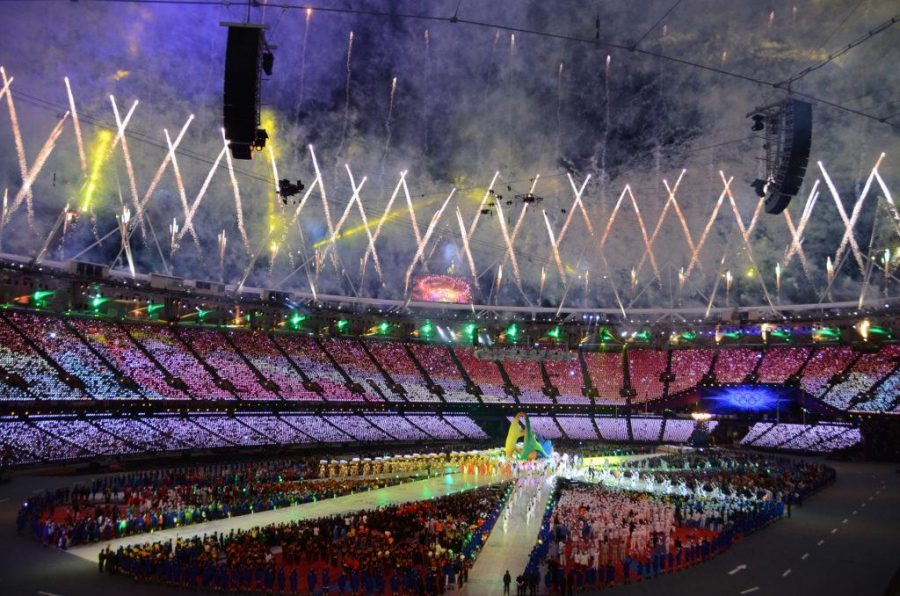Since their inception in the year 776 B.C., the Olympic Games have served as an unifying medium through which numerous athletes compete for distinction in a number of events. Over time, the Games have naturally modernized, resulting in many of the ceremonial formalities that are customary today. This is evidenced by the grandeur of the opening celebration, and the immense attention given to the trials by mainstream media moguls (such as Kathie Lee and Hoda). Yet, there are instances when the image of harmony portrayed by the Olympic Games is tarnished, specifically by the actions of ill-mannered individuals.
On Friday, August 12th, a fierce competition between two Olympic Judo fighters — Or Sasson of Israel, and Islam El Shehaby of Egypt — began to fester before they even stepped foot on the mat. Contentious political relations between Arab nations and Israel have resulted in countless forfeits by athletes, spanning years before the match. Despite pressure to forfeit the competition, El Shehaby decided to face his opponent, who is ranked 5th in the world. Competing in the over 100 kg weight category, both fighters weighed over 220 lbs., each with plenty of experience behind them. Sasson then performed the customary bow mandated by the International Judo Federation.
The gesture was hardly returned.
With a slight nod, deemed by the judges as a barely adequate substitution for a formal bow, El Shehaby briefly departed from the floor before eventually returning. With just 90 seconds remaining in the match, Sasson threw his opponent with veteran force, easily securing both a victory and his advancement to the next stage of competition. As the two humble giants rose, the audience expected to see what is an ingrained tradition within the sport of Judo fighting; a handshake between the two athletes. As Sasson attempted to embrace his opponent, he found El Shehaby unceremoniously backpedaling, refusing to shake the outstretched hand.
El Shehaby’s conduct will now be formally investigated by the Egyptian Olympic Committee.
In an obligatory statement to the press, IOC spokesman Mark Adams said, “Things happen in the heat of the moment that are not acceptable…We believe the Olympic movement should be about building bridges, not erecting walls.” Following this, an email statement was sent by Nicolas Messner, a spokesman for the International Judo Federation, commenting, “This is already a big improvement that Arabic countries accept to [fight] Israel.” Yet, beyond the condescending tone of these two organizations, their words rang disturbingly hollow.
This is due in part to the lack-luster attempt by the IOC to ensure the image of unity propagated so fiercely.
Just this year alone, the Israeli team has faced numerous acts of discrimination from other nations. For instance, Kuwait intentionally rejected the visa of an Israeli official traveling for a qualifying race, which appropriately led to a disqualification of the team. Furthermore, a renowned Syrian boxer refused to step into the same ring as an Israeli opponent; actions echoed loudly by a female Saudi Judo fighter just days after, who chose to forfeit as well. And as the Israeli team attempted to board the bus it had been designated to share to the opening ceremonies, they found themselves locked out by the Lebanese team.
According to the IOC’s defining principles of Olympism, sports are “a human right,” that every athlete must have the “possibility of practicing…without discrimination.” However, the Olympic Games in Rio have been as unifying as segregation was in the United States. While there is an outward appearance of equality portrayed by the IOC, what has become clear is that incentive to prevent political conflicts from transcending onto the tournament floor is entirely nonexistent.
In truth, many countries have been nothing short of intolerant, especially in the modern era.
Although there is truth behind the argument that countries are making vast improvements in their relations with Israel, immature mannerisms due to regional conflicts have no place on the international stage. Refusing to shake the hand of an opponent, forfeiting a match due to political tension, or locking a team out of a communal bus are all tangible forms of discrimination. Instead of simply permitting these incidents to occur, the IOC should set immediate precedent against these breaches of conduct — acts that, without correction, distort the definition of the Games and their purpose of facilitating unity.


